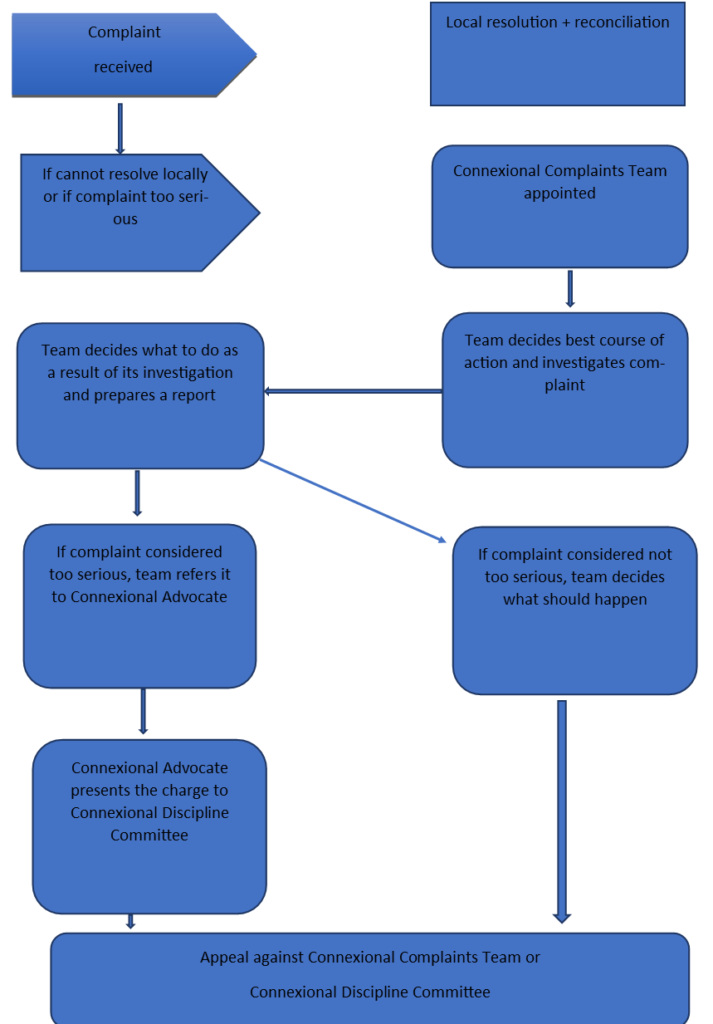GORDANO VALLEY CIRCUIT – COMPLAINTS POLICY
- Matthew 18 v 15-16 reads:
“If your brother or sister sins, go and point out their fault, just between the two of you. If they listen to you, you have won them over. But if they will not listen, take one or two others along, so that every matter may be established by the testimony of two or three witnesses”
This teaching of Jesus should underpin our dealings with one another as Christians and should certainly be applied to the informal resolution of differences. Jesus was arguing that matters should be resolved informally and should not end up in the public courts. This policy has the same aspirations.
- This Policy relies on the principles set out in the Complaints and Discipline of the Methodist Church which are as follows:
- The initiation of complaints should not be limited to members of the Church;
- There should be no difference in principle between ordained and lay people in the way in which complaints against them are dealt with;
- The possibility of reconciliation should be explored carefully in every casein which that is appropriate;
- Help and support should be offered both to the person making the complaint and to the person complained against at every stage during the process;
- The process should be fair;
- The person or body making the decision at each stage should be competent to do so;
- There should be a means of correcting any errors which may be made;
- There should be a means of ensuring compliance with any decision;
- There should be appropriate requirements relating to confidentially and record-keeping
2. The Circuit will appoint a local Complaints Officer who may be the Superintendent Minister.
A complaint is a statement made by a complainant objecting to the words, actions or omissions of a member or office holder of the Methodist Church made orally or, preferably, in writing.
The recipient is the member or officer to whom a complaint is made and should consider whether they:
- Can act to help resolve the matter.
- Should report it to their minister for further action.
- They report it to the Circuits Complaints Officer/Superintendent MinisteR
3. The Circuit will hold a written record of formal complaints received and action taken.
4. Unless they are the subject of the complaint it would normally be the Circuit Complaints Officer/Superintendent Minister who would determine that more serious complaints which cannot be resolved informally be dealt with formally either within the Circuit or by reference to the Bristol District. In such cases there may be reference to the Connexional Complaints Panel who will investigate and respond to the complaint in line with the Constitution Practice and Discipline of the Methodist Church paras. 1100-1105. In the case of the Complaints Officer or Superintendent Minister being the subject of the complaint, the matter shall be dealt with by reference to the District Chairman.
See: https://www.methodist.org.uk/for-churches/governance/complaints-and-discipline/
Circuit Complaints which are not resolved informally in a timely and satisfactory manner should be referred to:
The Complaints Officer
Gordano Valley Methodist Circuit
The Office, Christchurch, Clevedon, BS21 7LLTel: 01275 872580
email: clevedonmethodist@btinternet.com
The flow chart for serious complaints is set out below:
